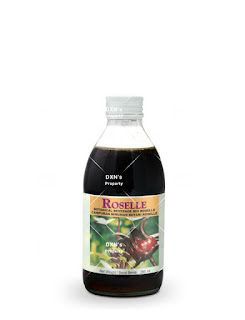SICKNESS: Heart Diseases (CHD)
What is Heart Diseases (CHD)?
Coronary Heart Disease (CHD) is usually caused by a build-up of fatty deposits (atheroma) on the walls of the arteries around the heart (coronary arteries).
Causes of Coronary Heart Disease (CHD)
Coronary heart disease is the term that describes what happens when your heart's blood supply is blocked or interrupted by a build-up of fatty substances in the coronary arteries. Over time, the walls of your arteries can become furred up with fatty deposits.
What is the Main Cause of CHD?
Coronary heart disease (CHD) is usually caused by a build-up of fatty deposits (atheroma) on the walls of the arteries around the heart (coronary arteries). The build-up of atheroma makes the arteries narrower, restricting the flow of blood to the heart muscle. This process is called atherosclerosis.
Can CHD be Cured?
Treating coronary heart disease (CHD)
Coronary heart disease cannot be cured but treatment can help manage the symptoms and reduce the chances of problems such as heart attacks. Treatment can include: lifestyle changes, such as regular exercise and stopping smoking.
What are the 4 Stages of Heart Failure?
There are four heart failure stages (Stage A, B, C and D). The stages range from "high risk of developing heart failure" to "advanced heart failure."
Stage C
- Shortness of breath.
- Feeling tired (fatigue).
- Less able to exercise.
- Weak legs.
- Waking up to urinate.
- Swollen feet, ankles, lower legs and abdomen (edema).
Can you live a long life with CHD?
As medical care and treatment have improved, babies and children with congenital heart defects (CHDs) are living longer and healthier lives. Most are now living into adulthood. Ongoing, appropriate medical care can help children and adults with a CHD live as healthy as possible.
There are several ways you can reduce your risk of developing coronary heart disease (CHD), such as lowering your blood pressure and cholesterol levels.
PRVENTION IS BETTER THE CURE!
Eat a healthy, balanced diet
A low-fat, high-fibre diet is recommended, which should include plenty of fresh fruit and vegetables (5 portions a day) and whole grains.
You should limit the amount of salt you eat to no more than 6g (0.2oz) a day as too much salt will increase your blood pressure. 6g of salt is about 1 teaspoonful.
There are 2 types of fat: saturated and unsaturated. You should avoid food containing saturated fats, because these will increase the levels of bad cholesterol in your blood.
Foods high in saturated fat include:
- meat pies
- sausages and fatty cuts of meat
- butter
- ghee – a type of butter often used in Indian cooking
- lard
- cream
- hard cheese
- cakes and biscuits
- foods that contain coconut or palm oil
However, a balanced diet should still include unsaturated fats, which have been shown to increase levels of good cholesterol and help reduce any blockage in your arteries.
Foods high in unsaturated fat include:
- oily fish
- avocados
- nuts and seeds
- sunflower, rapeseed, olive and vegetable oils
You should also try to avoid too much sugar in your diet, as this can increase your chances of developing diabetes, which is proven to significantly increase your chances of developing CHD.
BENEFITS THRU’ REGULAR USING DXN PRODUCTS:
- Detoxifies the Liver
- Reduces the Fat accumulation
- Improves general Liver functions
- Improves vascularity of the Liver
- Helps ‘ Liver-cell Regeneration’
- Improves overall Energy and Digestion capacity
PRODUCTS RECOMMENDATIONS:
- DXN RG&GL
- DXN Spirulina
- DXN Cordyceps
- DXN Roselle Juice
- DXN Morinzhi
- DXN Lingzhi Coffee 3N1











No comments:
Post a Comment